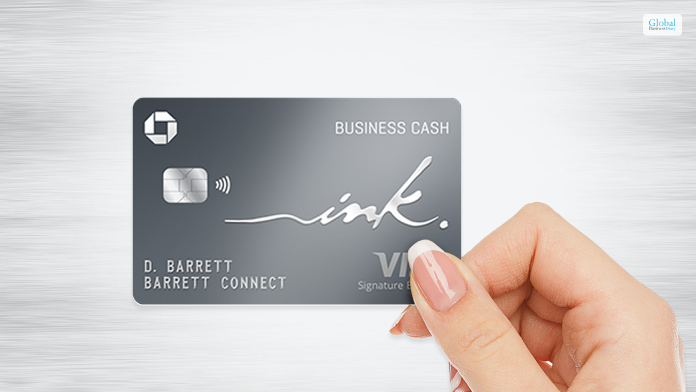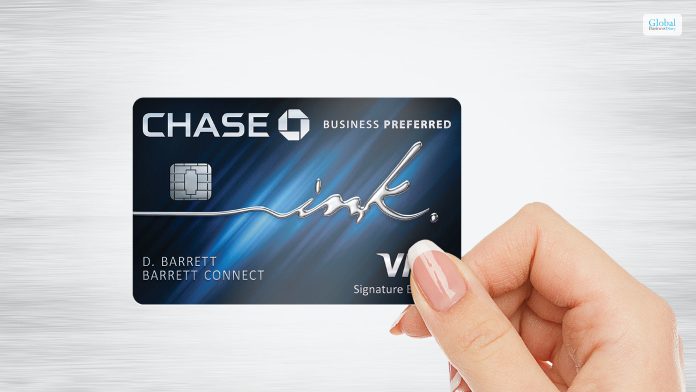Best Business Credit Cards For Startups In 2023

Best business credit cards for startups can make your life easier for getting short-term loans instantly. Credit cards can help you to build a good business credit score. Your repayments on time can make your CIBIL score better in the long term.
If you are a sole proprietor, then also you are eligible for a credit card. A social security number does not have a significant revenue history. If you are looking for the lowest interest rates, then Credit card history matters a lot.
Cashback rewards and other perks offer a good credit card score. Your startup needs to succeed at times to make things happen in your favor.
Best Business Credit Cards For Startups Available In 2023
Great business credit cards will offer you high limits for credits. Cash back rewards, balance offers, and travel facilities. Your credit card must suit your goals with complete ease. Try out the best options that can make things happen in your way.
1. Chase Ink Business Cash Credit Card

For business owners who are looking for better finances, Chase Ink is one of the best options to avail. It is one of the quality business credit cards for startups. The welcome offer for them is $750. The recommended credit score ranges between 670 -800 to get the maximum benefits of this credit card.
Features Of This Credit Card Are As Follows:-
- The best bonus-earning categories involve phone service, internet, cable, and office supplies.
- With Chase Ultimate rewards, it is highly compatible.
- You will receive 1% cash back on all other purchases.
- 2% cashback, you can redeem on the first $25 spent on restaurants and gas stations.
Your contribution margin needs to be in good shape. It will offer you the best options to explore things with ease.
2. American Express Platinum Business Credit Card

The American Express platinum business credit card is another best credit cards for startups. You will get the welcome offer of 120K points and an annual fee of $695. The recommended credit score ranges from good to excellent. You must be well aware of it. If your business requires frequent travel to distant places.
Some of the core features of this credit card are as follows:-
- $100 statement for credit entry and global entry for $85 in case of TSA precheck.
- Extensive travel and shopping protection.
- You will get upto 5X membership reward points.
- Minimal non-travel bonuses.
- Compared to other cards high annual fee.
3. Chase Ink Business Unlimited Credit Card

The Chase Ink Business Unlimited credit card is one of the best small business credit cards. You will receive a welcome offer of $750. The recommended credit score must range from good to excellent. You do not have to pay any annual fee and 1.5% cashback rewards you will receive from these credit cards.
Some of the key features of the credit cards are as follows:-
- You will receive unlimited cashback earnings.
- On a new purchase, you will receive unlimited introductory 0% APR for 12 months.
- For getting a high sign-up bonus, you will receive a low spending rate.
- Only foreign transaction fees can apply.
- Limited protection on travel costs as well as purchases.
- No presence of bonus categories.
Similar kinds of information are present in HubSpot too. You can go through it once for better understanding.
4. American Express Business Gold Card

American Express business gold cards will offer you 70K points. You will get an annual fee of $295K points. The recommended credit score ranges from good to excellent. Each billing cycle ranges between $150K. You can earn one point per dollar for expenses.
Some of the core features of this credit card are as follows:-
- You will receive flexible reward and redemption options.
- With the inclusion of the integration of books, it will deliver you expense management tools.
- There are no foreign transaction fees are essential.
- No credit statements.
- Offers high annual fee.
- It is not applicable for the lower spending business.
Sometimes for ERTC qualifications, credit cards play a vital role in getting the loans on time.
5. Chase Ink Business Preferred Credit Card

The Chase Ink business preferred credit card is also the best business credit cards for startups. It offers a welcome bonus of 100k points. The annual fee of $95 fees you will receive from these credit cards. The recommended credit score ranges from good to excellent. You will have the privilege to earn three points for every dollar spent.
Some of the core features of the Chase Ink business credit card are as follows:-
- You will receive multiple bonus categories.
- Phone and travel protection is possible.
- There are no requirements for foreign transaction fees.
- It comprises annual fees.
- If you want to get a high sign-up bonus, then you have to pay
- High spend requirements for the sign-up bonus.
6. Blue Business Plus Credit Card From American Business

The blue business plus credit card from American business credit cards will help your small business to grow at a rapid pace. You will receive the welcome offer of 15K points. Your requirement to pay the annual fee is $0. The recommended credit score ranges from good to excellent.
Some of the core features of the Blue Business Plus credit card from American Business are as follows:-
- You will have multiple transfer partners.
- On all purchases, you will get flat-rate earnings.
- Delivers your generous welcome offer.
- You can apply for foreign transaction fees.
- $50K bonus earning cap.
7. US Bank Business Triple Cash Reward

The welcome bonus offer you will receive is $500. The annual fee of $0 you have to pay for getting this business credit card for start-ups. The recommended credit score ranges from good to excellent. You will receive business rewards. For a long introductory APR period, you will have to go through it once.
You will receive 3% cashback for all the categories.
Some of the core features of this best business credit card are as follows:-
- $100 statement credit for recurring software subscriptions.
- Upto 5% cash back that is booked on the US bank travel portal.
- No travel rewards you will receive from this credit card.
- Low rate outside all the bonus categories.
Best Small Business Credit Cards
There are several small business credit cards that you can opt for in 2023. Some of the best small business credit cards are as follows:-
- Chase Ink Business Preferred Credit Card.
- American Express Platinum Card.
- Capital One Spark Cash for Business.
- American Express Blue Business Cash Card.
- Discover it, Business Card.
- Wells Fargo Business Platinum Credit Card.
- U.S. Bank Business Platinum Card.
Your business’s net operating income also matters a lot here. Try to consider this fact as well from your end.
Final Take Away
Hence, these are the best business credit cards for startups in 2023. You need to take care of the reality while you want to get short-term loans for your business. It is impossible to make your choices all of a sudden.
You can share your views and comments in our comment box. It will assist us to know your take on this matter. Try to develop a better solution that can make things work perfectly well in your favor.
Read More Busuiness Related News By Clicking Below!!













